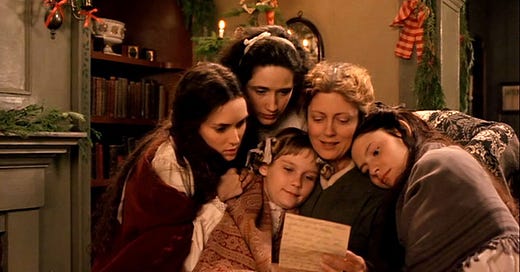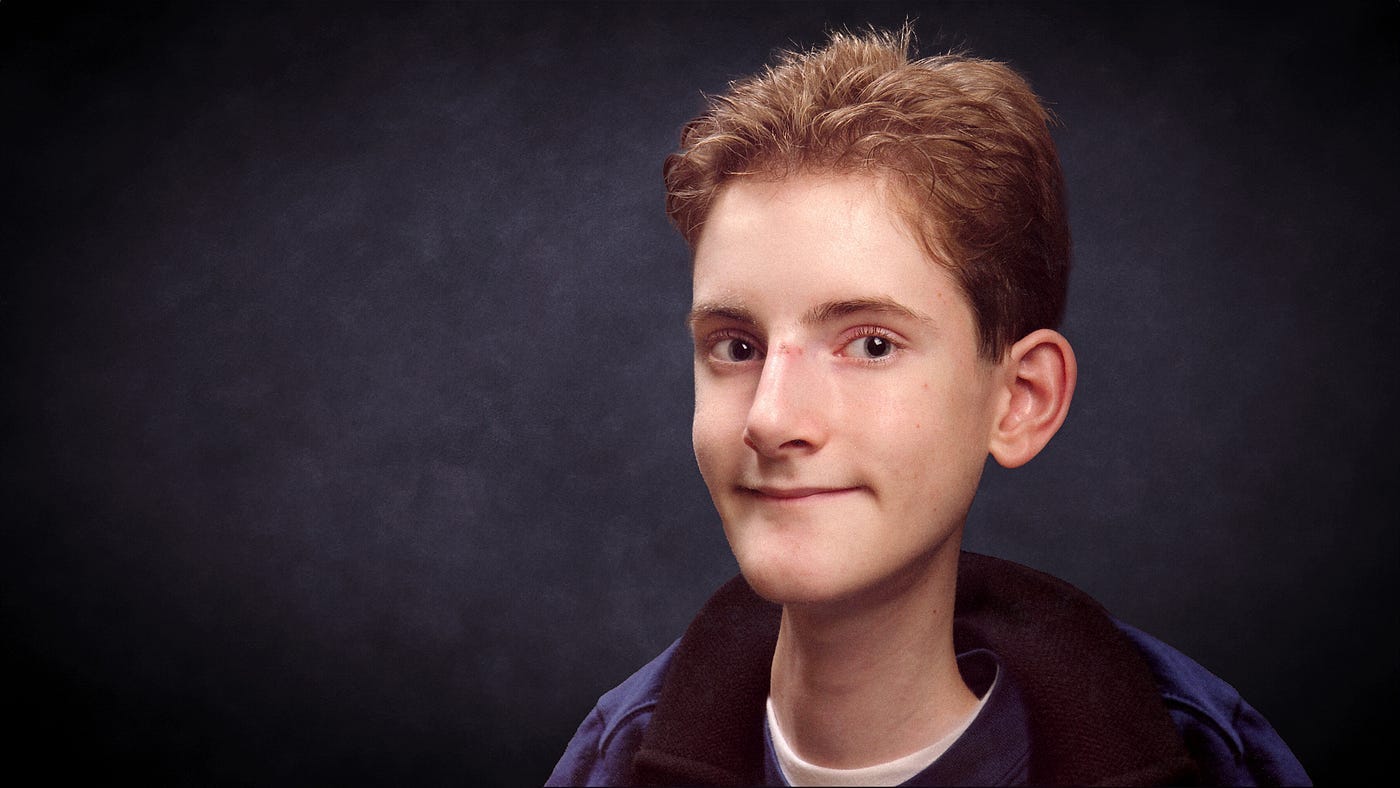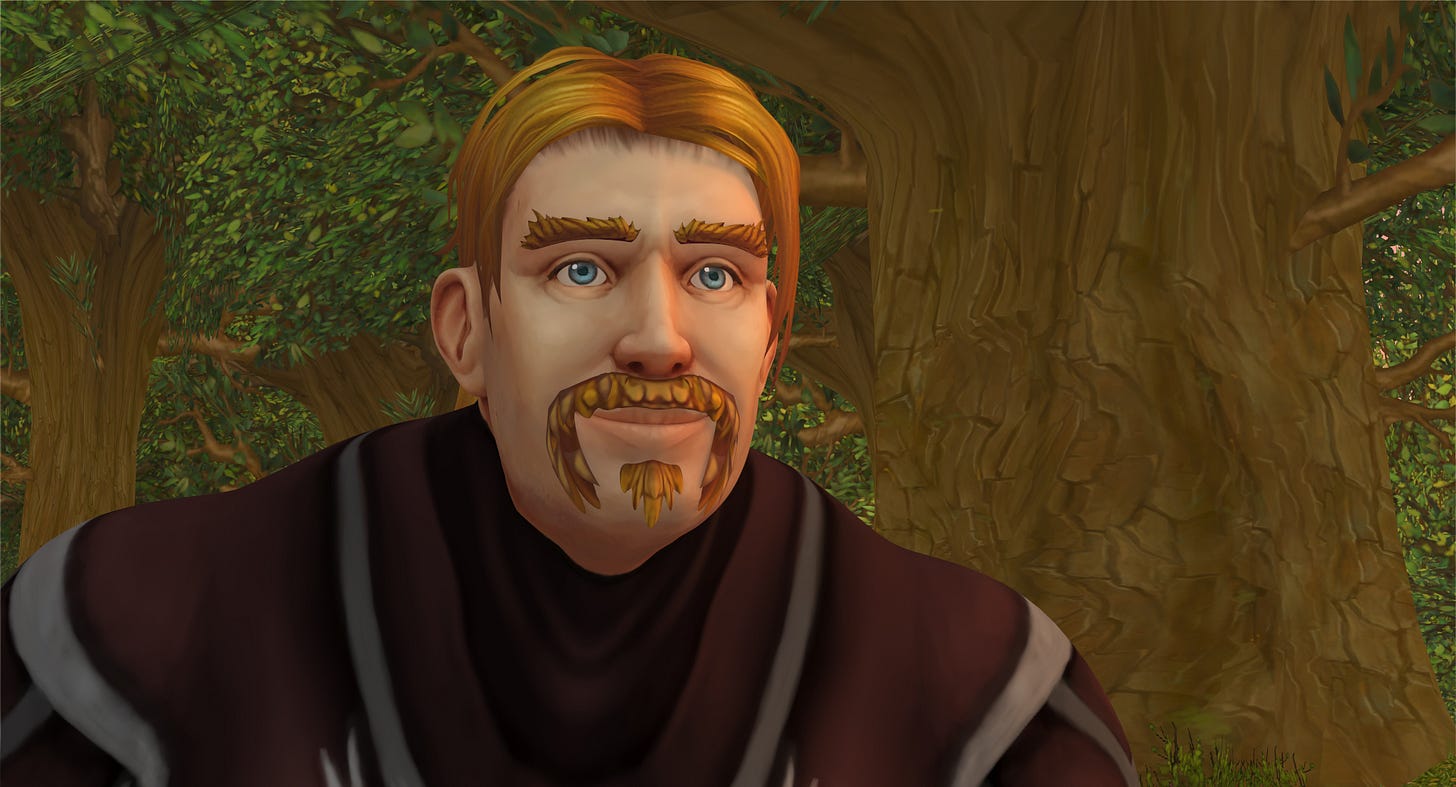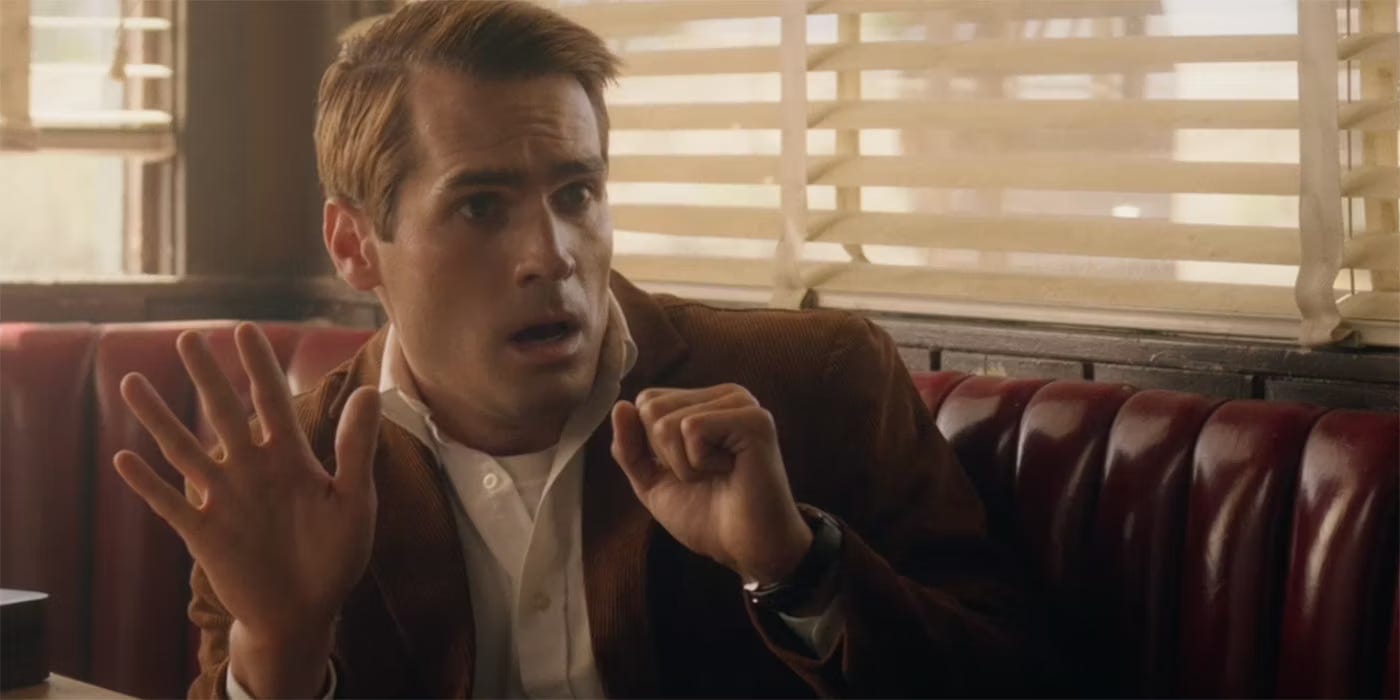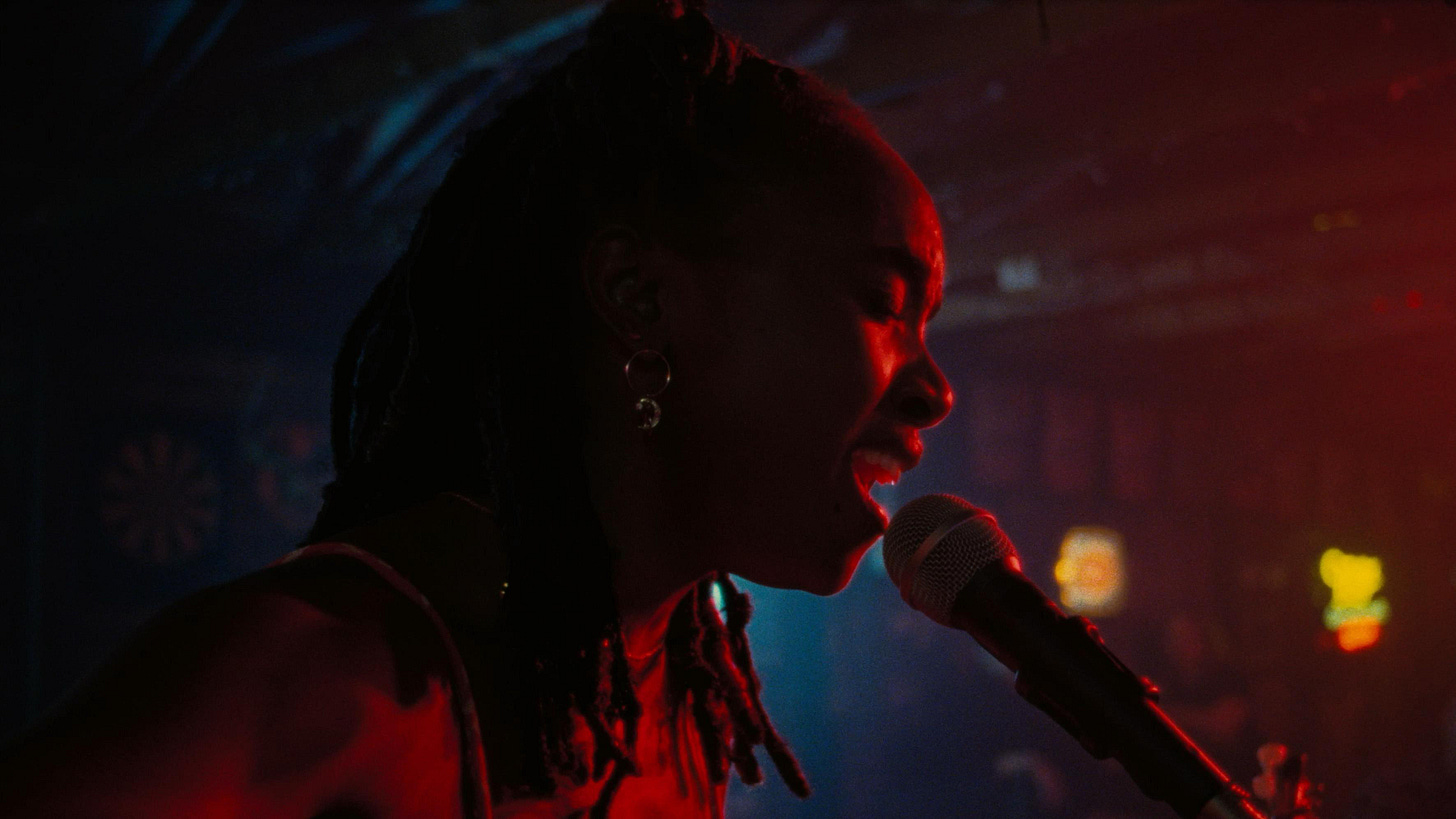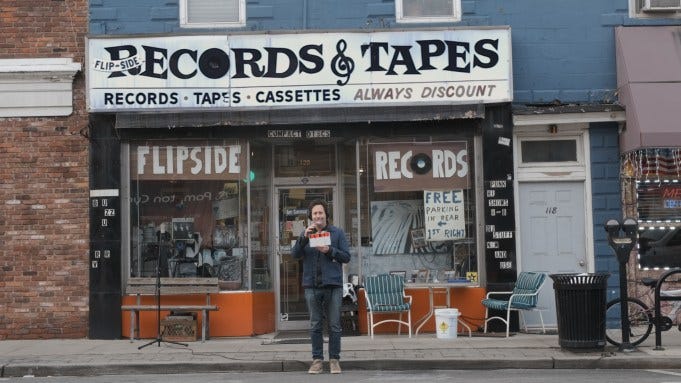'Little Women' and a 'Dandelion' Bloom at 'The Last Stop in Yuma County'
Double up! Day 3-4 at the Chicago Critics Film Festival. [5/6/2024]
The day I was most anticipating at the Chicago Critics Film Festival was Day 3, due in no small part to Jane Schoenbrun’s sophomore feature I Saw The TV Glow. My review of that film will be coming in a longer form to Starburst Magazine, so I won’t outline it here, but rest assured it is a masterpiece of the highest possible order, solidifying Schoenbrun as one of the most original and powerful filmmakers of our time.
However, that wasn’t the only reason I was excited! After a 35mm screening of Gillian Armstrong’s Little Women, I still saw two other highly anticipated films outside the Glow that delighted me more than most others in the festival. Then Day 4 surprised me with two of the best films yet. Strap in for my short form reviews!
Little Women (1994)
Into the Music Box Theatre I ran out of breath, finding my seat next to my mother in the darkness as a speaker (I did not get a chance to see who it was) left the stage after introducing the film. Everyone clapped and cheered as the projector whizzed to life and a scratching opening titles illuminated our faces. My mother leaned into my ear and whispered “They’re all acting like this is like The Wizard of Oz.” I told her that I knew what she meant. In the wake of Greta Gerwig’s 2019 Little Woman adaptation, this 1994 picture has found a space in the classics canon with young viewers. Having not seen it since before adulthood, I too found the reverence with which it is spoken about unearned.
I then proceeded to watch something which did indeed feel like The Wizard of Oz. The undeniable warmth of Gillian Armstrong’s Little Women makes this perfectly composed portrait of family life, womanhood, and growing up. This movie deserves its place not as simply a comparison point to other adaptations but as a singular work that can stand alongside many other pieces of family cinema as a timeless delight. The direction, performances, and especially its management of tones that range from total loving comfort to the fear of death itself do hold this movie up as one to be revisited in every generation. 4.5/5
The Remarkable Life of Ibelin
Mats Steen was an avid gamer who kept a lot of his life online due to having a degenerative muscular disease. He died at 25 years old. His parents mourned not only his death, but the life they could not give him in which he could socialize, fall in love, and feel accepted for who he was.
Then they discovered Mats’ blog password, and uncovered the online life that their son lead which tangibly touched so many other people. In the fantasy roleplaying game World of Warcraft, Mats lead a life as Ibelin, a heroic investigator and pillar of an online community. This film documents some of the experiences Mats was able to have in the digital space through gaming that not only allowed him to love, but be loved by so many of the people around him.
Told with a mixture of game asset-based animation and documentary footage, Ibelin captures the best things about our online youth and the societies and full lives they can create. The inspirational story reminds us that the person on the other end of our screens is a real one with stories unto themselves. If we learn to empathize through that fact, we can extend our love’s reach beyond what we thought possible. 4/5
The Last Stop in Yuma County
In this Coen/Tarantino riff, a mid-desert diner next to an out-of-gas station collects armed and dangerous patrons until tensions bring them all to a knife and bullet standoff. If your favorite genre is “bags of money” then you’re in the right place. The Last Stop in Yuma County revs up the heat and then fires on all cylinders once the tension turns action. For a first feature from director Francis Galluppi, this is an excellent time at the theater, especially if you can find a crowd as lively as that of the Music Box.
However, the film is not on par with his peers in this space. Perhaps it is unfair to judge Yuma County for not being as good as Blood Simple or Reservoir Dogs, but lest we forget those were directed by first time directors as well. This film never reaches those heights in its camerawork, performances, and overall charm, leaving the audiences more likely to forget about this one next time they’re craving something in the genre. 3.5/5
Dandelion
I previously ragged on In a Violent Nature for being introduced by the festival presenter as something akin to a Terrence Malick film. That comparison could have simply been an adjective: slow. A much closer cousin to that director’s work is the filmmaking of of Nicole Riegel in Dandelion. A central romance in this story of a young woman (Kiki Layne) discovering her artistic voice brings to mind the wandering freeform softly narrated connections in To The Wonder and the nature based exploration of love in The Tree of Life. Intimate moments are shot with delicate inserts of the elegant flora and timid fauna of South Dakota.
Layne is a total star, though most who have seen her work in other pictures probably know that. She approaches the titular character with commitment to a lack of knowledge; she is young and slightly naive, which makes you root for her dreams of musical recognition. The story itself is incredibly simple, but it demonstrates the heart of artistic expression being experiences of discomfort. 3.5/5
Flipside
Directed by commercial filmmaker Chris Wilcha, Flipside examines the Gen X fear of selling out from the other side of it. Wilcha has made a documentary about his inability to make a documentary, and the many stories he's failed to tell during his years of work. He's assembled a cast of characters from the history of his projects that includes Jazz photographer Herman Leonard, entertainment personality Uncle Floyd, the director’s parents, This American Life host Ira Glass, and filmmaker Judd Apatow. Every story told us actually the same story of artistic triumph and failure. The centerpiece of the picture is a little record store in New Jersey called Flipside so cluttered with music history that it drives away potential customers.
This is Wilcha’s film; by letting go of our nostalgia for the past and the many artistic influences that drove us to be ourselves, we might discover a future of expression by mining ourselves for truth. Shot with the intelligence of experience in the format of a YouTube documentary, Flipside’s wandering approach narrated by Wilcha finds many things to say about creating art with an eye towards mortality. It takes a strong look at the artistic expression we actually want to do and asks us whether it really is that important at all. 4/5


